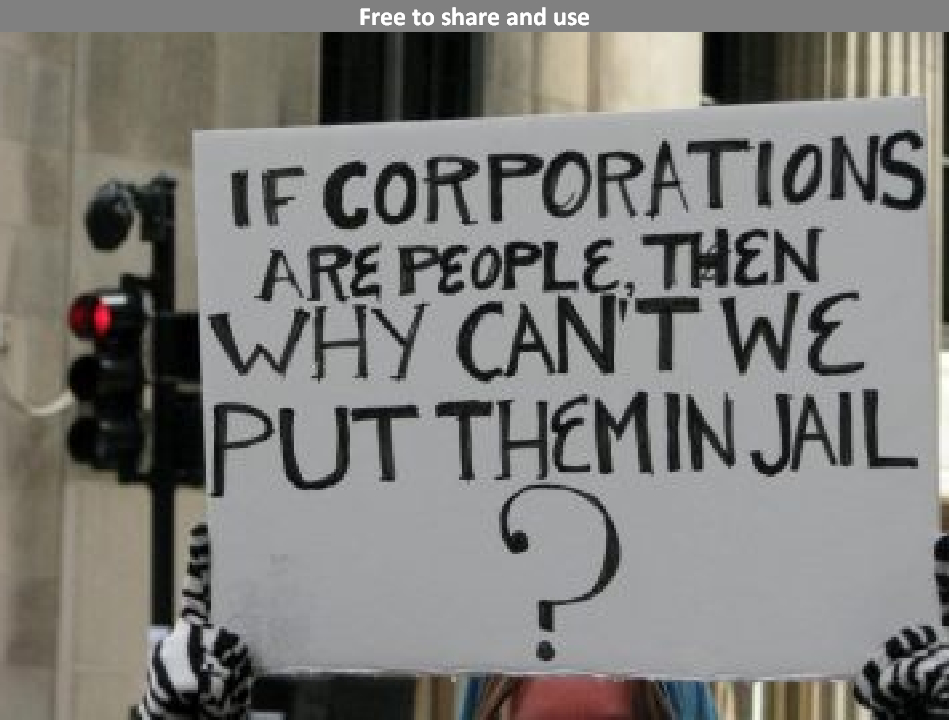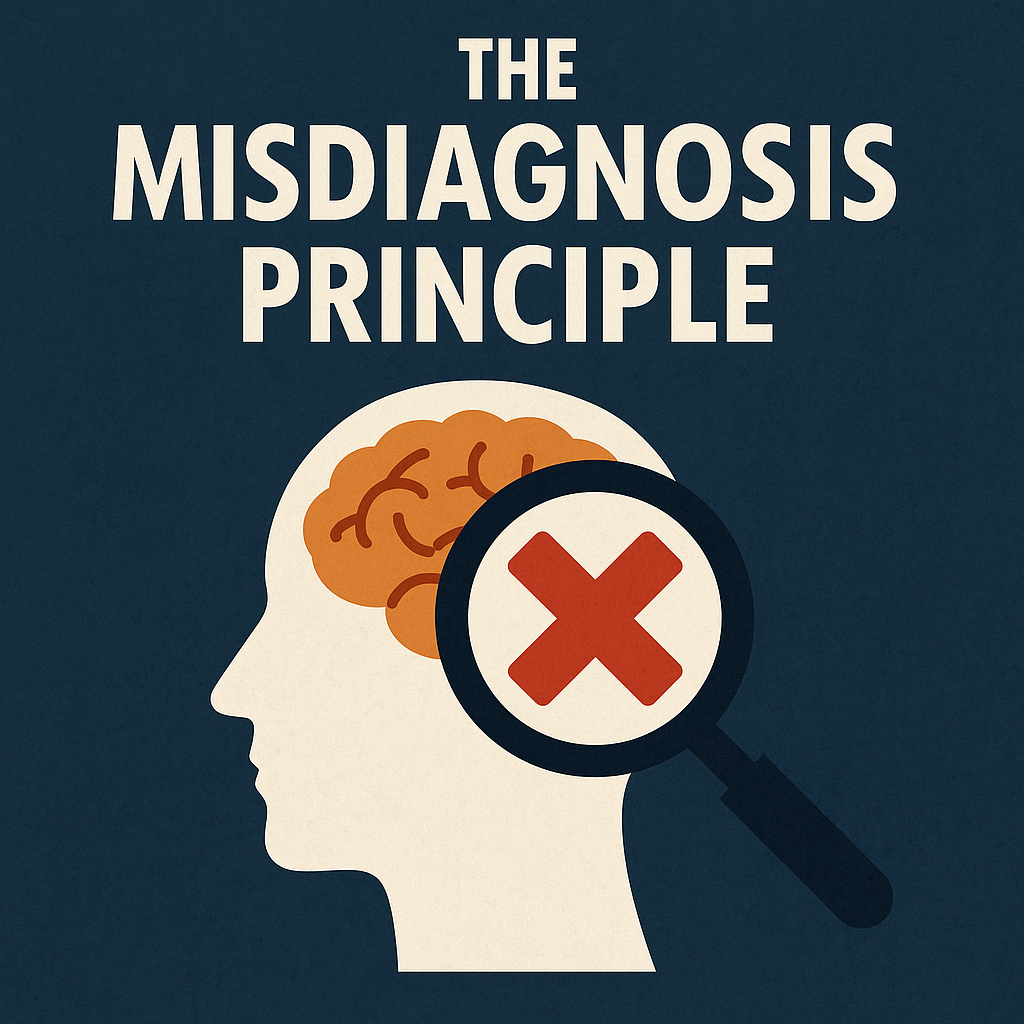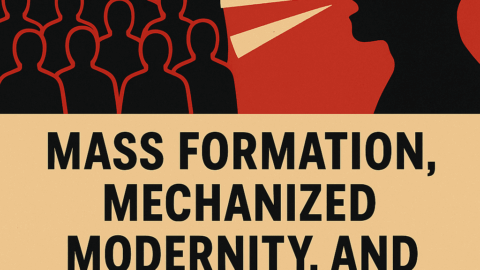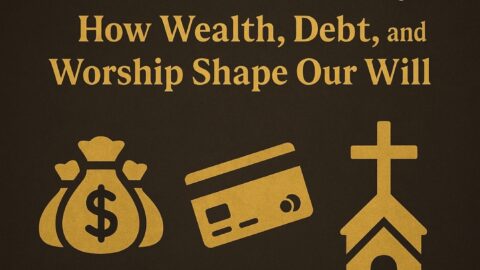In Monopolies are Anti-American: (part 2):
“We hear that the colonists were upset about “taxation without representation“, but we are left without context. We finally get more details and context into why the colonists were upset about the concept. They were being double taxed, indirectly and directly.”
“In both instances, complaints were made about taxation without representation and in both instances monopolies were in part to blame. King George III, like James I, imposed a double burden on his people by both taxing his people directly and by indirectly taxing them through the issuance of royal monopolies. The colonists were both taxed on imports, and they were made subject to British control over foreign trade without representation in Parliament.”
For this article, I would like to reference Thom Hartmann’s book, Unequal Protection: How Corporations Became “People” and How You Can Fight Back.
“Was the Boston Tea Party the first WTO-style protest against transnational corporations? . . . Thom Hartmann takes on these most difficult questions and tells a startling story that will forever change your understanding of American history. He begins by uncovering an original eyewitness account of the Boston Tea Party and demonstrates that it was provoked not by “taxation without representation” as is commonly suggested but by the specific actions of the East India Company, which represented the commericial interests of the British elite.”1
“A corporation has no rights except those given it by law. It can exercise no power except that conferred upon it by the people through legislation, and the people should be as free to withhold as to give, public interest and not private advantage being the end in view.” — William Jennings Bryan, address to the Ohio 1912 Constitutional Convention
What is a corporation?
“An artificial person or legal entity created by or under the authority of the laws of a state or nation . . . “2
We learn a corporation is “an artificial person or legal entity”, that has “no rights except those given it by law”, or “power except that conferred . . . by people through legislation, and the people” are “free to withhold as to give, public interest and not private advantage being the end in view.”
Thom Hartmann:1
- “(D)escribes the history of the Fourteenth Amendment–created at the end of the Civil War to grant basic rights to freed slaves–and how it has been used by lawyers representing corporate interests to extend additional rights to businesses far more frequently than to freed slaves.”
- “Prior to 1886, corporations were referred to in U.S. law as “artificial persons.” but in 1886, after a series of cases brought by lawyers representing the expanding railroad interests, the Supreme Court ruled that corporations were “persons” and entitled to the same rights granted to people under the Bill of Rights.”
- “Since this ruling, America has lost the legal structures that allowed for people to control corporate behavior.”
- “As a result, the largest transnational corporations fill a role today that has historically been filled by kings.”
- “They control most of the world’s wealth and exert power over the lives of most of the world’s citizens.”
- “Their CEOs are unapproachable and live lives of nearly unimaginable wealth and luxury.”
- “They’ve become the rudder that steers the ship of much human experience, and they’re steering it by their prime value–growth and profit and any expense–a value that has become destructive for life on Earth.”
- “This new feudalism was not what our Founders–Federalists and Democratic Republicans alike–envisioned for America.”
In essence, the State and local governments by way of we the people as the creators of corporations and we should not allow the creation to be equal or greater than the creator.
In 1935, under the 14th Amendment, the Supreme Court gave the creation, the corporations “an artificial person” equal footing and on par with a person of flesh and blood, a real human being.
“State and local governments recognized the value and the importance of having local entrepreneurs responsible for the local business, rather than out-of-state monopolies, chains or multinational corporations. During the 1920’s and 1930’s, in a wave of anti-chain-store populist sentiment, more than twenty-five states passed laws that taxed out-of-state or multinational businesses at a higher rate than local entrepreneurs, to discourage the distant and encourage the local.”3
“But this was overthrown in 1935 when the Lane Drug Store chain sued the state of Florida, claiming that because its corporation was actually a person under the Constitution it was illegal discrimination under the Fourteenth Amendment for a state to give preferential treatment to a person in that state while not offering the same treatment to a person from out of state. The Supreme Court, looking back to 1886, sided with the Lane corporation, and now states and local communities all over the nation find themselves without the legal tools to encourage and nurture local businesses.”3
Corporations continued to evolved and receive more and more legal rights:
“The legal rights of the . . . defendant, Loan Company, although it it be a corporation, soulless and speechless, rise as high in the scales of law and justice as those of the most obscure and poverty-stricken subject of the state.” — Brannan v. Schartzer, (Ohio, December 25, 1915), excerpt from the judge’s ruling4
A great way to understand the economics and the effects and consequences that are happening at a local level is to see the effects of Wall Street, which are monopolies of corporations, and compare them against Main Street. Thom Hartmann goes into detail in his book, Unequal Protection:
The Local Money Recycling System We Lost5
- “There is one huge difference between a mall full of chain stores or a big-box retailer and a downtown area full of small businesses, and it’s a difference that is destroying local communities on the one hand and creating mind-boggling wealth for a very few very large corporations on the other. Here’s how it works.”
- “When I shop in downtown Montpelier, Vermont, and buy a pair of pants, for example, at the Stevens Clothing Store on Main Street, at the end of the day the store’s owner, Jack Callahan, takes his proceeds down to the Northfield Savings Bank and deposits them. From Stevens, I walk next door to Bear Pond Books and buy today’s newspaper, a magazine, and a copy of Thomas Paine’s Rights of Man, a book that is as fascinating today as when it was first written in 1791. At the end of the day, Bear Pond’s manager, Linda Leehman, will take my money down to the Chittenden Bank and deposit it. From Bear Pond I go to one of the dozen or so local restaurants and exchange some of my cash for a good meal. At day’s end that cash, too, will end up in one of Montpelier’s local banks.”
- “The next day Montpelier’s banks are richer by my purchases, as are Stevens, Bear Pond, and the restaurant. If my daughter the Web designer wanted to start her own design firm in an office on Main Street (or from her home), she could visit one of those banks, and, if her credit was good, they could loan her some of the money that was deposited with them the night before from the townspeople’s purchases.”
- “If her work is good, Stevens or Bear Pond or the restaurant may decide they want to hire her to design their Web site, using the profits they made from my and others’ purchases to pay for her work. She’ll put her money into the local bank, increasing its deposits available for local lending. Thus, by keeping money within the community, the community grows. This is how communities in America and most of the rest of the world have historically grown.”
- “In the process of patronizing local businesses, people get their social and exercise needs met by walking into and around in downtown areas, and they contribute wealth to the local community, which eventually recycles back to them in the form of an improved quality of life, local taxes for local services like schools and police and parks, and a thriving entrepreneurial environment. That’s a healthy local economy.”
The Out-of-town Money Vacuum5
- “Consider, though, if my shopping trip had been to a mall full of chain stores or to a national superstore. Strict management of cash flow is the name of the game for such businesses, and some of them make deposits several times a day. But the money stays in town for only a day at best.”
- “At the end of every day, somebody somewhere pushes a button and all the money from each of the national or international chain’s outlets all over the world goes whoosh to a distant location (usually near the headquarters of the chain). Of course, some of the money comes back into the local community in the form of wages, rent, taxes, and purchased services, but it’s a fraction of what it would be had it all stayed in the community from beginning to end. And none of the profit ever finds its way back into the local community unless, coincidentally, there are local stockholders (and except in the most extraordinary of cases, the amount would be minuscule).”
- “At the moment one of the main things that prevent local communities from defining and protecting their own local economies from these cash vacuums is based on the concept of corporate personhood.”
The evolution and elevation of corporations of having rights under the 14th Amendment, have corrupted the process and their mission statement as they have overreached their mission, boundaries and limitations by not allowing the state constitutions, and local communities to keep them within their proper roles.
“Corporations are neither physical nor metaphysical phenomena. They are socioeconomic ploys – legally enacted game-playing-agreed upon only between overwhelmingly powerful socioeconomic individuals and by them imposed upon human society and its all unwitting members. — R. Buckminister Fuller, Grunch of Giants
Eliminating Competition:7
- “More than two thousand corporations had been chartered between 1790 and 1860. They helped protect themselves from economic disasters by keeping tight control over the economy and the markets within which they operated. In this they echoed the Federalist ideas of Alexander Hamilton and John Adams.”
- “Many companies deal with competition by working hard to earn our business . . . But others don’t; they feel that the best way to deal with competition is to eliminate it. And, as the East India Company had shown, two ways to do so were by getting the government to grant a monopoly or special tax favors or by crushing or buying out one’s competition.”
There were four ways of dealing with competition: (1) Work hard to earn people’s business (2) Government to grant a monopoly (3) Special tax favor (4) By crushing or buying out the competition.
We can now see how the definition and meaning of corporation has been changed over time by government with the aid, influence and backing of major corporations. It will have major shift and change in the direction and destination of America that will allow for eliminating their rivals and competition. In short term, it will keep prices and control down, but once the competition is destroyed that will change.
“Monopolies are bad because people get bad service for high prices. Competition is good because people get good service for competitive prices.” — Timothy C. Draper
Wall Street is suffocating and strangling Main Street by a slow death but is picking up speed at an exponential growth rate.
How important are word and definitions?
“The basic tool for the manipulation of reality is the manipulation of words. If you can control the meaning of words, you can control the people who must use the words.” — Philip K. Dick
The pre-1886 definition had the corporations limited and confined, but the new interpretation, brings unlimited, unconfined and sinister direction for the “invisible hand” that Adam Smith was talking about in eliminating competition.
“The corporate position is clear: let the “invisible hand of the marketplace” work things out, while the corporations pry as many of the natural resources of the commons as possible out of the hands of democratically elected governments and put them into the invisible hands of the corporations.
But both Adam Smith and history tell us that such privatization schemes and the invisible hand work only to place more and more wealth into the pockets of the corporations and their stockholders. Citizens and their elected officials must intelligently constrain that invisible hand, or it will end up holding those officials and the resources of the citizens by the throat, as we can so clearly see in the entanglement of Enron and governments around the world.”8
We need to reverse the meaning and definition from the ground up to return to pre-1886 regulation on corporations.
“You and I could never afford to do such a thing, but economies of scale mean that for huge property owners such efforts can have very big paybacks. Motivated to pursue the subject, with the means to do so, and in the absence of regulations preventing it, they do the obvious thing, as Adam Smith predicted anyone would: they act in their own self-interest.”9
EQUAL TRADE, FAIR TRADE, HONEST, DECENT TRADE REQUIRES:10
“REASONABLE balance between trading partners and strong domestic economies. When that happens, Adam Smith’s model works pretty well: prices for labor, materials, and finished goods all settle near the area where they “naturally” should be.”
“But as we’ve seen from the immensely imbalanced statistics on distribution of wealth . . . something is not working the way Smith envisioned. Wages appear to be dwindling, and the number of strong, healthy competitors appears to be shrinking.”
Is eliminating competitors part of the overall plan, by consolidating all the wealth into an world oligarchy?(Is Planned Obsolescence Anti-American? How does it relate to Monopolies and The Declaration of Independence)
By reading what Adam Smith says in The Wealth of Nations (Book I, Chapter XI). We could substitute then for modern times, by way of Congress, legislatures and the “Too Big to Fail” Corporations as they were favored by new laws and regulation of commerce.
“To widen the market and to narrow the competition is always the interest of the dealers…. The proposal of any new law or regulation of commerce which comes from this order, ought always to be listened to with great precaution, and ought never to be adopted, till after having been long and carefully examined, not only with the most scrupulous, but with the most suspicious attention.”11
“It comes from an order of men, whose interest is never exactly the same with that of the public, who have generally an interest to deceive and even to oppress the public, and who accordingly have, upon many occasions, both deceived and oppressed it.”
It sure sounds like we could be reading this on the internet or watching this on alternative websites today. It was as much applicable and current then as it is now.
We find the book will go more in detail on unequal consequences:
- Unequal Uses for the Bill of Rights
- Unequal Regulation
- Unequal Protection from Risk (“Too Big Too Fail”)
- Unequal Taxes
- Unequal Responsibility for Crime
- Unequal Privacy
- Unequal Citizenship and Access to the Commons
- Unequal Wealth
- Unequal Trade
- Unequal Media
- Unequal Influence
Here is a great question to think about?
“Did Supreme Court sell out America’s citizens in the nineteenth century, with consequences lasting to this day? Is there a way for American citizens to recover democracy of, by, and for the people?” (1)
Ron Paul tells us, “Competition is helpful in any endeavor.” So what is the purpose and reason for eliminating it?
“If you and your clique wanted to control over the United States, it would be impossible to take over every city hall, county seat and state house. You would want all power vested at the apex of the executive ranch of the federal government; then you would have only to control one man to control the whole shebang. If you wanted to control the nation’s manufacturing, commerce, finance, transportation and natural resources, you would need only to control the apex, the power pinnacle, of an all-powerful SOCIALIST government. Then you would have a monopoly and could squeeze out all your competitors. If you wanted a national monopoly, you must control a national socialist government. That is what the game is all “Communism” is not a movement of the downtrodden masses but is a movement created, manipulated and used by power-seeking billionaires in order to gain control over the world. . . . first by establishing socialist governments in the various nations and then consolidating them all through a “Great Merger,” into an all-powerful world socialist super-state probably under the auspices of the United Nations.”12
What is the solution?
“It’s time for “we, the people” to take back our lives. Hartmann proposes specific legal remedies that could truly save the world from political, economic, and ecological disaster.”1
We need to end corporate personhood and rein corporations back to the pre-1886 Supreme Court ruling in order to start to heal our countries economic woes and place it on the correct tracks in order to get back to what our Founding Fathers intended.
“Once corporate personhood is eliminated and corporations are again seen as they really are—the fictitious legal creatures of the states that authorized and created them—all this can change. The rightful representatives of humans—our governments—can then pass laws like the ones that were once part of this nation and its states, forbidding corporations from attempting to influence the laws and the regulatory agencies that oversee their activities.”6
(1) Summary of Unequal Protection: How Corporations Became “People” and How You Can Fight Back
(2) Definition of Corporation (Blacks Law Dictionary 2nd Edition, 1910)
(3) Unequal Protection: How Corporations Became “People” and How You Can Fight Back, page 300
(4) Unequal Protection: How Corporations Became “People” and How You Can Fight Back, page 49
(5) Unequal Protection: How Corporations Became “People” and How You Can Fight Back, page 298-299
(6) Unequal Protection: How Corporations Became “People” and How You Can Fight Back, page 312
(7) Unequal Protection: How Corporations Became “People” and How You Can Fight Back, page 117
(8) Unequal Protection: How Corporations Became “People” and How You Can Fight Back, page 146
(9) Unequal Protection: How Corporations Became “People” and How You Can Fight Back, page 206
(10) Unequal Protection: How Corporations Became “People” and How You Can Fight Back, page 249
(11) Unequal Protection: How Corporations Became “People” and How You Can Fight Back, page 297
(12) None Dare Call It Conspiracy






